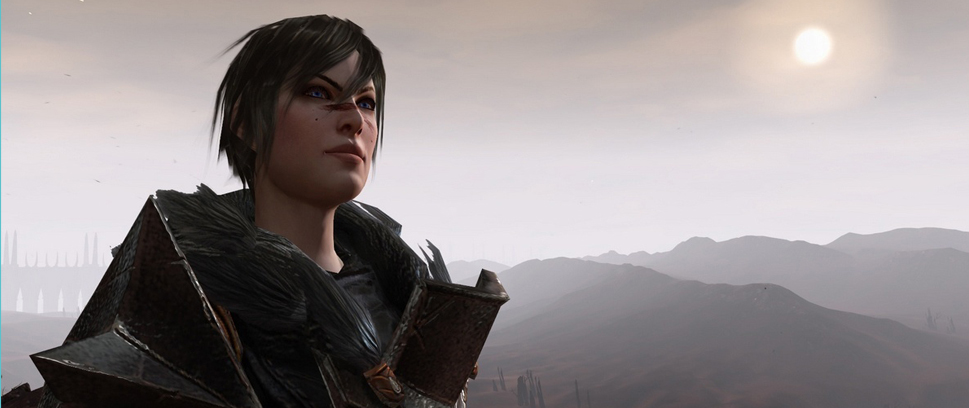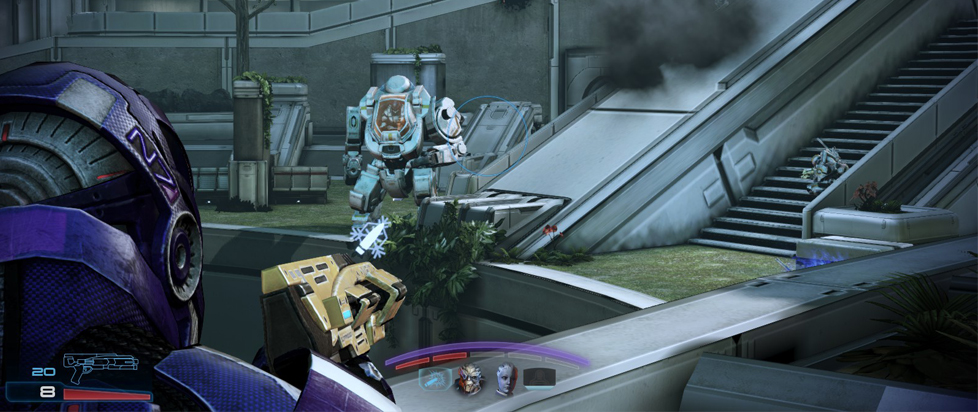
Cargo Cult Mass Effect
The worst thing you can call someone short of straight-up accusing them of committing various crimes against humanity isn’t stupid, or ugly, or creepy. Stupid can be funny or endearing, ugly can wrap right around again to beautiful, and creepy at least means they made enough of an impact on you to be worth designating with the label.
No, the worst thing you can call someone is boring.
Boring isn’t worth knowing — it’s a whole world of people waiting for you to stop talking so they can get back to whatever they were doing. Boring makes no impact or mark on the world save for its absence. You will never have fond or foul remembrances of the day that you were just so bored, because your mind has better things to do.
Mass Effect: Andromeda was one of the most painfully boring games I’ve ever played. And now it’s dead.
You can still play it, of course, and if you decide to spend your time on its multiplayer you can look forward to a trickle of updates, but for all intents and purposes the bulk of the game has been abandoned. This happens to every game, but rarely in such an abrupt fashion. Andromeda had at least three hooks in the epilogue that seemed tailor-made for single-player DLC (which these days seems to be considered less of a disgusting moneygrab and more an obligation to expand the game) and it’s unlikely that they’ll ever be resolved save for little-read comics and novels. It’s all the more surprising given that previous BioWare games tended to have multiple large expansions — even Dragon Age II, considered perhaps the weakest of modern BioWare’s output until Andromeda came along, received two big pieces of DLC that improved dramatically on the game’s flaws.

One could argue Andromeda was treated unfairly — BioWare games as a whole tend to make a greater-than-normal effort toward inclusiveness and as such are targets for the parts of the internet that have time to make four-hour long videos about such things. Much of the pre-release talk about Andromeda centered on the, ah, amateurish way the game’s characters were animated, and while they were quite bad it’s not hard to think that many criticisms of them were done in bad faith. If I’m a person googling to see if the game is worth buying and the first thing I see is all of this, maybe I choose to spend my money elsewhere.
That’s not quite an adequate explanation for what happened with Andromeda, however. Bad press pre-release can harm a game’s bottom line, but once the actual game is out in the wild its quality (or lack thereof) is hard to meme away. Were Andromeda any good, those animation issues would recede into the background, or become part of the charm. Shepard’s creepy smile in Mass Effect 2 didn’t prevent it from becoming one of the highest-rated games of all time.
What seems far more likely is this: Andromeda is a cargo cult.
You don’t notice it at first, because for all its faults Andromeda is very good at pretending to be a Mass Effect game. All the trappings are there — you’ve got your surly Krogan, graceful Asari, all the technology and terminology any fan of the original trilogy would immediately recognize. Your crew is plucky and wise-cracking, the threat you face is ancient and mysterious, at some point you can sleep with an alien. In one of the game’s few legitimately inspired bits, the first two notes of Andromeda’s main menu screen are actually the last two notes you hear in Mass Effect 3’s final DLC. The attempt to connect Andromeda to the original Mass Effect trilogy is apparent, and arguably sincere.
Over the game’s hundred hours or so, those Mass Effect adornments are revealed to be incredibly thin. Take the characters. Much of the appeal of a modern BioWare game in general and Mass Effect games in particular revolves around your avatar’s relationship with various party members. You’re spending several actual real-life days with them, so it makes sense that you’d want to make them interesting. Past BioWare games used party members for storytelling and worldbuilding — it is difficult for me to care about the plight of the Krogan as they are ravaged by a fertility plague in the abstract, but when I see how it affects my best alien buddy Wrex, then it’s a source of pathos.

No doubt BioWare knows this. Pre-release, fans seem way more interested in which characters they’re going to be able to romance than anything else, and you only have to go to one convention to see hundreds of Wrexes and Morrigans and Shepards. People like these characters, and BioWare desperately wants them to like Andromeda’s characters as well. They’re so dead-set on it that you have to like them, in fact. At no point in the story can you do anything worse than express mild disapproval toward your party members, and even when you do it’s a meaningless negativity that is immediately forgotten. In the original Mass Effect, you could call a character a fool for believing in a god, unfairly question her confidence, shut her down when she opens up to you, and then leave her to die ensuring a nuclear bomb goes off. In Andromeda, you can say “oh, you!” to a character who is either your friend, your best friend, or your lover. I tend to be a softy when I play these games and make nice with as many characters as I can, but the crucial thing there is that I chose to do that. I had options, you see. Part of playing a game with choices like that is comparing what you did to what everyone else did, and knowing that your playthrough was in some small way unique. Andromeda doesn’t trust you to make those choices, even to the point where characters invite themselves onto your ship and you can’t say no.
In Jason Schreier’s excellent Andromeda postmortem, he reveals a strange detail: though Andromeda was in development for five years, a big portion of that time was wasted attempting to bring procedurally-generated planets to the game, a kind of “No Man’s Sky meets Mass Effect” approach. Exploration is another big part of what makes Mass Effect what it is, but this was a bizarre approach, as fitting a compelling story into places that aren’t specifically crafted to support that story is an impossible task. What they did instead was to make six or seven big planets you could actually travel to and include a lot of things to do on each one.
Again, this revealed a flawed understanding of what made the original trilogy compelling. A typical exploration sequence in Andromeda goes like this: you wander around a suspiciously-Earthlike alien planet (incredibly, in an entirely new galaxy that could support amazing visuals and interesting biomes, two of the planets you travel to in Andromeda are a variety of desert) until you come across a questgiver. You talk to the questgiver, whose face you will never see in closeup (because on the rare occasions you do, you find out that many of the aliens in the game share the exact same face, something that BioWare managed to avoid in every game they’ve put out so far) and they tell you to do a thing. You wander toward the thing, and you come across twenty other quests and tasks and random battles. Sometimes you get to the thing and the quest is simple — other times, it sends you back and forth across the galaxy where you encounter hundreds of other distractions until finally you finish what you’re doing. You go back to the questgiver, they say “oh hey thanks man,” you get some credits and XP, and if you remembered at all what you were originally supposed to be doing I’d be either impressed or scared.
The original Mass Effect came out ten years ago, and while it contained its share of wandering every quest served in some way to build the world, and they were presented with a focus and care that meant that even today I can remember big details of relatively minor quests. I played Andromeda earlier this year and it contained so much pointless busywork doled out by placeholder characters that even its major story beats are fading. Even the flavor text on planets you can’t visit is a problem — the original trilogy told stories of Jupiter brains and death world Krogan proving grounds and “beings of light” while the most interesting planets in Andromeda have some aluminum on them, I guess.
It’s honestly too bad. The idea of a group of brave explorers going into cryosleep and waking up to colonize a brand new galaxy is a good one, and a legitimate Mass Effect game could find all kinds of themes and stories worth developing in it. That’s not this game, however, and it’s unlikely that whatever future iteration of the series will ever go back. The name Andromeda isn’t so much tainted, because even a truly execrable game would have stuck in your head.
It’s worse: when it comes to Andromeda, everyone was too bored to care.





